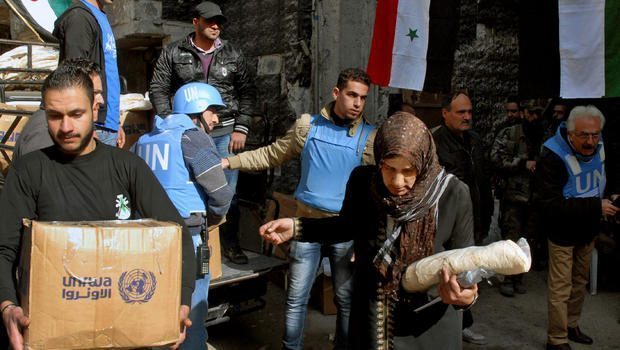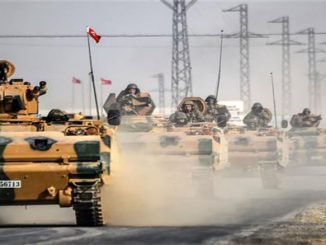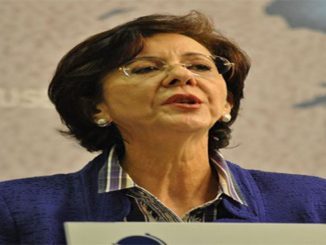
A report released by rights group The Syria Campaign on Wednesday accuses the UN of delivering 99 percent of its aid to Assad-controlled territories, and calls on the UN to “restore its impartiality.”
The report, based on interviews with aid workers, including current and former UN staff, finds the UN in Syria in breach of its humanitarian principles and at risk of fuelling the conflict.
Entitled Taking Sides: The United Nations’ loss of impartiality, independence and neutrality in Syria, the report documents how from the beginning of the conflict in Syria, the UN provided the Assad regime with “an effective veto over aid deliveries” to areas outside of regime control, enabling its use of “siege as a weapon of war.”
Almost one million people are living in 52 blockaded areas of Syria, of which 49 are under siege by the Assad regime.
The regime is denying food and medicine to the 49 opposition-held areas, according to the Syria Campaign, the advocacy group which completed the investigation.
The advocacy group added that last year, almost 90 percent of UN requests for aid deliveries were ignored or denied by the regime. One UN official said the number of requests was already kept low so as not to “annoy” the authorities.
The result is that most aid is distributed solely to areas under regime control. This has unintentionally bolstered Assad, allowing the regime to spend less money on aid and more on military operations, as well as posing as a reliable provider of help.
People in besieged areas have to buy food on the black market, paying up to 100 times the cost; baby milk formula in Damascus costs 500 Syrian pounds, while in the besieged suburb of Daraya it sells for nearly 30,000 Syrian pounds.
Assad’s starvation tactic has forced hundreds of thousands of people out of opposition-held enclaves and into areas under the regime’s control.
The organisation’s fear of having visas revoked or being asked to leave Damascus has led to far-reaching and unnecessary capitulations to the Assad regime by the UN, the reports states, describing “a culture of compliance” among agencies in Damascus, Al-Jazeera reported.
The UN’s failure to set red lines for its operation has weakened its negotiating power with the Assad regime and allowed humanitarian aid to become party to the conflict in Syria, according to The Syria Campaign.
The report stated that “the UN has allowed the [Assad regime] to direct aid from Damascus almost exclusively into its territories.
In April 2016, 88 percent of food aid delivered from inside Syria went into Assad-controlled territory. Twelve percent went into territories outside Assad’s control, the report added.
The Daily Telegraph quoted Bissan Fakih of the Syria Campaign, as saying: “A UN with the backbone to stand for its principles would help get aid to hundreds of thousands of Syrian civilians under siege, many of them only a few minutes’ drive from where the UN is based in Damascus.”
’Systematic failure’
“There has been a systematic failure in the UN-led response. Rather than basing its response on need, it has developed into a billion-dollar response programme that is largely controlled by the regime and its proxies,” Roger Hearn, former head of UN agency UNRWA in Damascus, said.
Asaad al-Achi, director of Baytna Syria (Syria is our home), accused the UN of losing its credibility in the conflict in Syria and called on UN Secretary-General Ban Ki-moon to “restore the UN’s credibility by setting conditions on its relationship” with the Assad regime.
Backers of the report are calling on Ban to “draw a line” and set conditions for its relationship with the Assad regime aimed at protecting its humanitarian principles.
If those conditions are not met, then the UN must withdraw cooperation with the Assad regime, the report states.
The report was signed by groups such as the Syria Civil Defence, known as the “White Helmets”, Basmeh and Zeitooneh, the Syrian Network for Human Rights, the Violations Documentation Center and dozens of Syrian humanitarian organisations, local councils and civil society groups.



